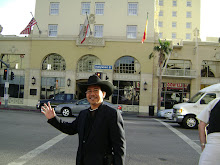I got a text message today July 13, inquiring about a review center near the texter's place in the Visayas. Months earlier, I was texted about the same matter. In fact, the inquiry was about review materials. As of now I am not cognizant of any review activities being done by any organization or persons, except that there was this "rhumor" to just read "MY book" because the questions were taken from there. Tumaas nga ang sales ng book na yon na di ko man nabasa when I was having my academics, never ever heard about the author, and never ever read about a certain LUKER or LOOKER? Anyway, if there is any apprehension I can help the reviewers, do feel free to email your questions and the review process may be done that way. Of course free lang. I cannot afford your fees.
And for the benefit of those who are thinking about doing review activities, or publishing review materials, please read the following which I got from the internet:
Source: http://sc.judiciary.gov.ph/publications/benchmark/2009/04/040903.php (Accessed July 6, 2009)
Benchmark Online April 2009
SC: CHED Has No Authority to Regulate Review Centers
By James C. Bitanga
The Supreme Court struck down an Executive Order expanding the coverage of regulation by the Commission on Higher Education (CHED) to include review centers, entities in the business of preparing applicants for professional licensure examinations.
The Court En Banc, through a 23-page ponencia of Justice Antonio T. Carpio, declared EO 566 unconstitutional and invalid as it had expanded the coverage of CHED’s authority without authorizing legislation. Accordingly, the Court also found that the Revised Implementing Rules and Regulations (RIRR) corresponding to EO 566 was “an invalid exercise of CHED’s quasi-legislative power.”
In ruling in favor of the Review Center Association of the Philippines, the Court ruled that EO 566 is an unconstitutional exercise of legislative power by the President as it expands CHED’s regulatory coverage to include review centers, despite the fact that RA 7722, the law defining CHED’s authority, only limits such coverage to “public and private institutions of higher education and degree-granting programs in all post-secondary educational institutions.”
In this regard, the Court clarified that a “review center is not an institution of higher learning as contemplated by RA 7722…[i]t does not offer a degree-granting program that would put it under the jurisdiction of the CHED.” Moreover, “[a] review course is only intended to ‘refresh and enhance the knowledge or competencies and skills of reviewees,’” and it does not require enrollment, attendance, a grade or submission of a thesis in order to complete the review center course requirements or take the licensure examination.
Likewise, the Court struck down the RIRR as an invalid exercise of CHED’s quasi-legislative power, finding that “[t]he CHED may only exercise its rule-making power within the confines of its jurisdiction under RA 7722. The RIRR covers review centers and similar entities which are neither institutions of higher education nor institutions offering degree-granting programs.”
The Court also rejected the argument that the President was merely exercising her residual powers under EO 292 in expanding CHED’s regulatory coverage. Following prior jurisprudence, the Court stressed that the President has no inherent or delegated power to make, alter or repeal laws, absent an enabling legislation allowing her to do so. Thus, the President, in amending the functions of the CHED under RA 7722, without enabling laws granting her that authority, usurped the authority of the legislature.
In addition, the Court ruled that RA 8981, the Philippine Regulation Commission Modernization Act of 2000 (The PRC Modernization Act), did not give the President, through the PRC, powers to regulate review centers. Under RA 8981, the PRC must “ensure and safeguard the integrity of all licensure examinations” and adopt “measures to preserve the integrity and inviolability of licensure examinations.” The Court stated that “[t]hese powers of the PRC have nothing to do at all with the regulation of review centers.” (GR No. 180046, Review Center Association of the Philippines v. Ermita, April 2, 2009)
All the best then. God bless
Search This Blog
Monday, July 13, 2009
Subscribe to:
Post Comments (Atom)



1 comment:
I really appreciate your effort of updating us with the latest info about guidance & counseling which should have been the work of "someone else". Update and info about the coming board exam should have been regularly posted and updated in the so-called "official org". Thanks Padz for the care and compassion to this profession... Kuting
Post a Comment